|
Gladys Bishop Hurtt was born in January 1921 in Albemarle County, Virginia, the much-loved youngest of a large family. Her parents Lee and Queen Victoria Bishop worked hard, and Gladys said if they were poor, she never knew it. As a young woman, she drove a smart roadster and dressed with the careful eye she would always be known for. Gladys raised her infant daughter Betty with great resourcefulness while her husband John Sheldon Hurtt was away at war. She worked hard her whole life, both at her job assembling electronics and at home. Gladys never sat if she could do something; she never walked if she could hurry. She cared for her grandchildren, Travis and Torah Cottrill, with great love and endless patience, and loved her four great-grandchildren without reservation. The kindness and generosity she showed to friend and stranger alike touched many lives. She will be greatly missed.
0 Comments
When Hal Greenberg asked us to bring The Awakened phenomenon into the 21st century, I imagined the possibilities of using the sudden appearance of Awakened individuals throughout the world to explore how the powerless might use unexpected gifts. In The Awakened universe, a second moon awakens latent abilities (the ability to communicate with an animal companion, or one specific ability such as the ability to heal or to control an element) in a very small fraction of people on their 19 birthdays. In the fantasy world of Grimaton, people are aware of the possibility that they may be Awakened, and different societies have different ways of incorporating Awakened individuals. But what would happen to people in our world who discover powers that seem to be magical or supernatural? What will they do with those powers, and how will they be treated?
I had seen a documentary about sex workers in India, many of whom had been sold into the red-light districts and were kept as literal captives, and I wondered how these women, powerless and voiceless in the modern world, would react to becoming Awakened. Would they use their abilities to free others or to enact revenge? How would the world around them react to the most marginalized becoming powerful? Genre fiction—fantasy, science fiction, horror, urban fantasy, and other blends of the fantastic and the mundane—is a perfect vehicle for exploring the ripples that promulgate from a shift in reality. You can change one thing, and see where the consequences lead. Many of the most engaging works of genre fiction explore the impact of a single decision or event on the larger world, like Simak’s City, Hopkinsons’s Brown Girl in the Ring, Gaiman’s American Gods, the Strugatskys’ Roadside Picnic, or Willis’ To Say Nothing of the Dog. In my own far more modest story “Return of the Devis,” I wanted to explore the places at which physical power intersected social powerlessness, to see where having an Awakened power made a difference to a character’s life and the world around her, and the places where it couldn’t. One of the joys of writing in a shared universe is being part of the creation of a far larger work. Writing for the Awakened series has given me a chance to see the many different ways genre fiction can explore new ideas. One set of circumstances—the process of becoming Awakened—leads to stories as different as the authors. We can use comedy, swashbuckling, problem-solving, crime-fighting, and psychological drama, among many other tools of the genre writer, to explore the ways a fictional universe can reflect the essentials of human existence. The last time I saw my mother, she was frustrated with her hair. Her post-chemo hair, suddenly iron-grey and surprisingly obstreperous, wouldn’t submit to damp-brushing. It was the hairstyle of 1930s child comedies, not my polished, self-controlled mother. But by the middle of April she was too weak to stand and wasn’t able to shower even with assistance.
“I want it cut,” she insisted, and her boyfriend and caregiver Richard brought me a pair of clippers and hovered. Finally, I shooed everyone else out of the house for errands and filled a bowl with warm water. “Let’s try this first,” I said. Draped in a bath towel that swallowed her thin shoulders, my mother dabbed her face as I wet her hair with a damp washcloth. She sent me back to get different shampoo from her bathroom; my first pick, Touch of Silver, was “for old ladies” and she didn’t want it. I worked the shampoo into her hair with my fingertips. Wet, her hair was more sparse than I’d realized. Her skull against my fingers felt so fragile, so vulnerable. I had a memory of washing my children’s hair when they were brand new to the world, eggshell skulls heavy with significance and fragile as spun glass. I cupped my mother’s head in my hands, at the end of her life, as I had my children’s at the beginning of theirs, with painful care and desperate tenderness. When we were finished and shampoo, bowl, and towels cleared away, I styled her hair with the product I used on my own newly short cut. “Smells nice, doesn’t it?” I asked. I smoothed and combed and patted until her hair was carefully controlled, the way she’s always liked it. Mom had me push her wheelchair to a mirror and show her how I did it, and I brought her a hand mirror so she could see the back. “So, just wet it and comb it in the mornings, right?” she asked. “That should do it,” I told her. “You probably won’t even need to wash it that often; this stuff doesn’t make my hair sticky.” I wondered who would wash her hair for her next time. We sat for the rest of the afternoon, her in the wheelchair and me on the couch next to her, holding hands and talking, each telling the other she was loved. “Have we done everything you needed to do while I’m here?” I asked, and she went through the list, still very much the woman who’d always needed to be in control of every aspect of her life. After a while, she started to fade. By the time Richard got back, she was ready to go to bed. I sat on the side of her bed, holding her hand, as bit by bit she fell asleep. I remembered this, as well, staying warm and still and present holding a child’s hand as sleep stilled the last restlessness, waiting past the first steady breaths and waiting longer, standing up by increments, carefully letting go the sleeping hand. I stayed with my mother as I once did with my children, stroking her arm, trying to ease her gently into sleep. We had a few more days together, but by the last one she didn’t have the strength to get out of bed. I sat on the bed with her until it was time to leave for the airport. “I can’t say good-bye,” I said, mostly succeeding in not crying. “I’ll get some more time off work and come back in a couple of weeks.” “Okay,” she said, “that would be fine. I love you.” “I love you, too.” That was Friday. By the next Friday, she was dead. |
Torah Cottrill
I read. I write. And sometimes I talk about it.
(Issue #20 - free to read)
(Issue #14 - free to read)
(Issue #25 - free to read)
Archives
August 2017
The Far Side of the World:
|

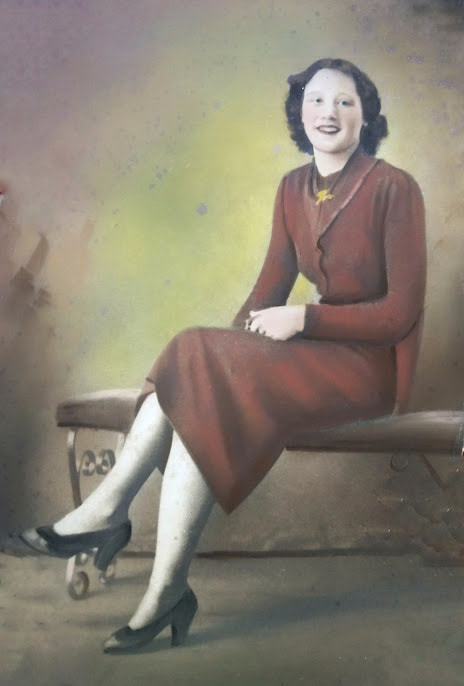
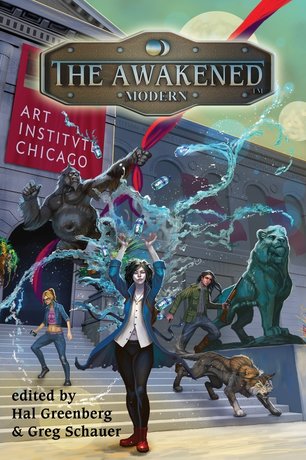
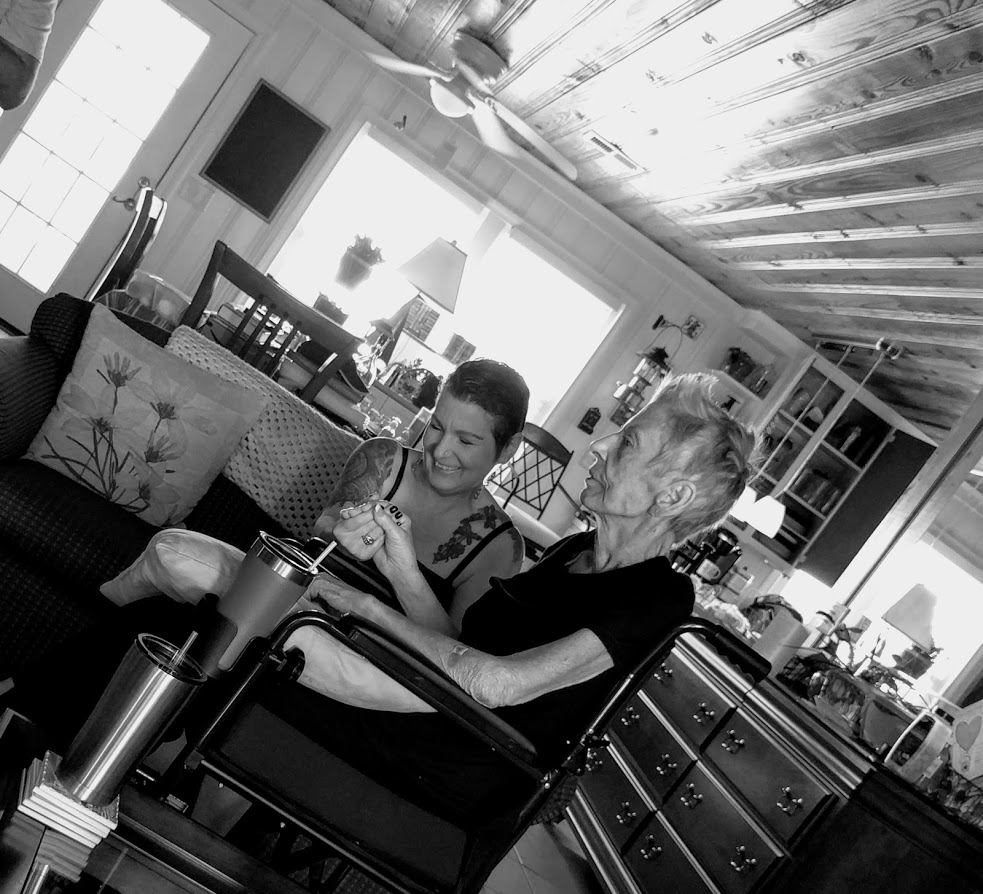
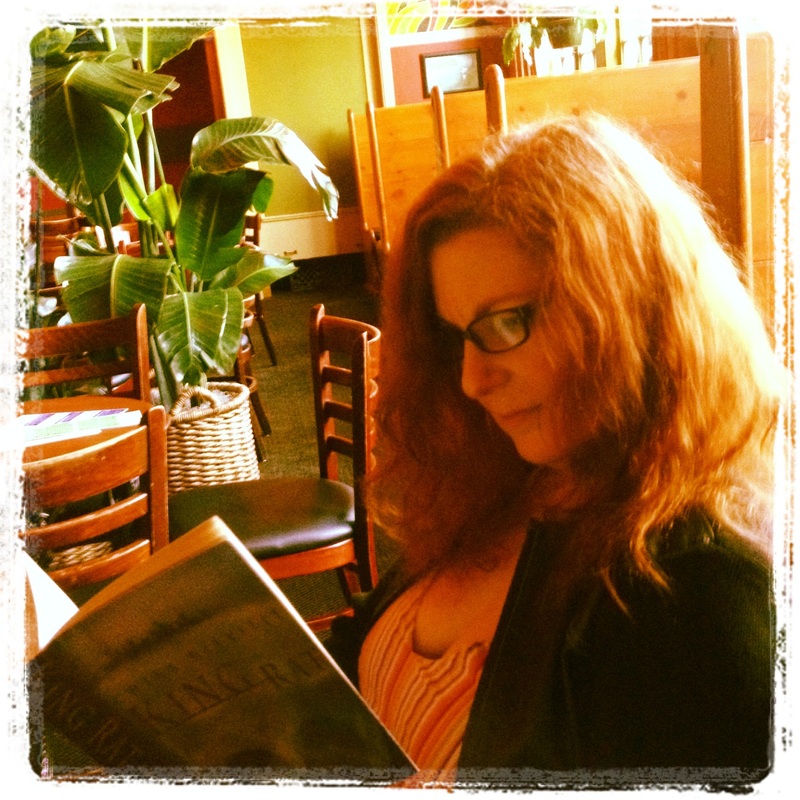
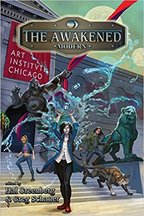
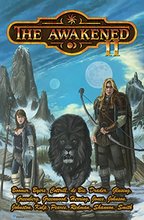

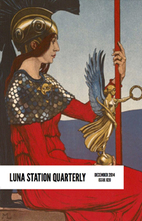
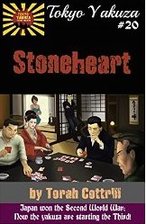

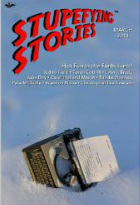
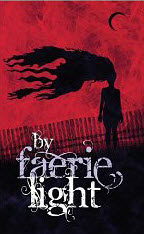


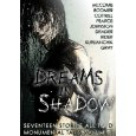


 RSS Feed
RSS Feed
